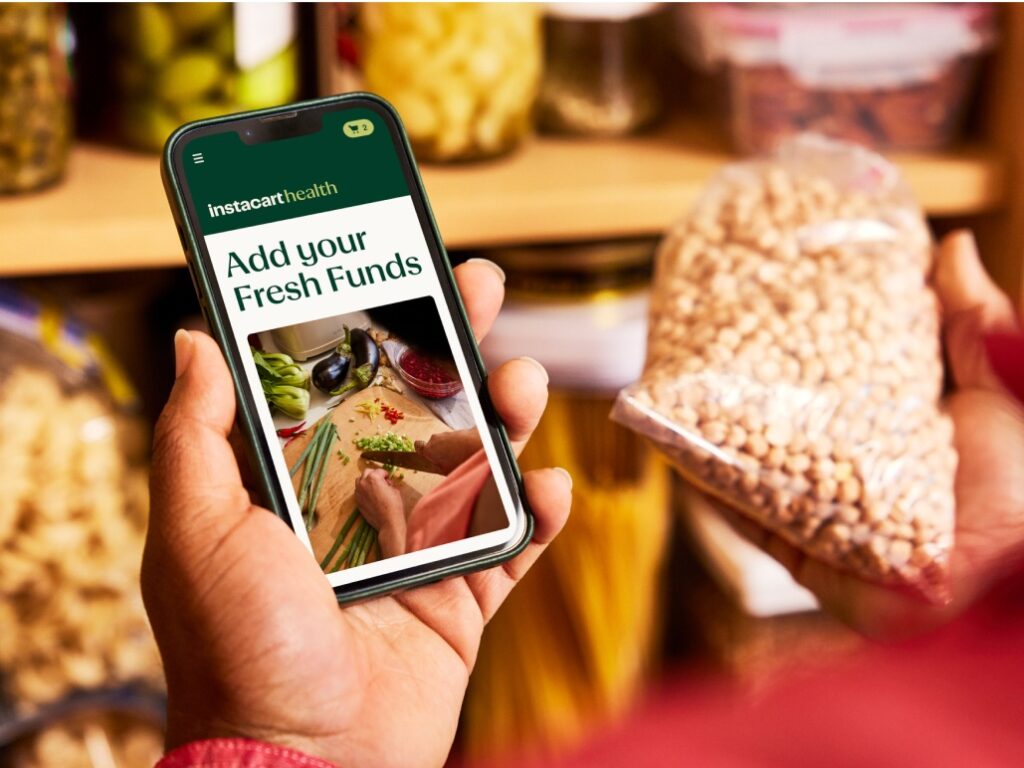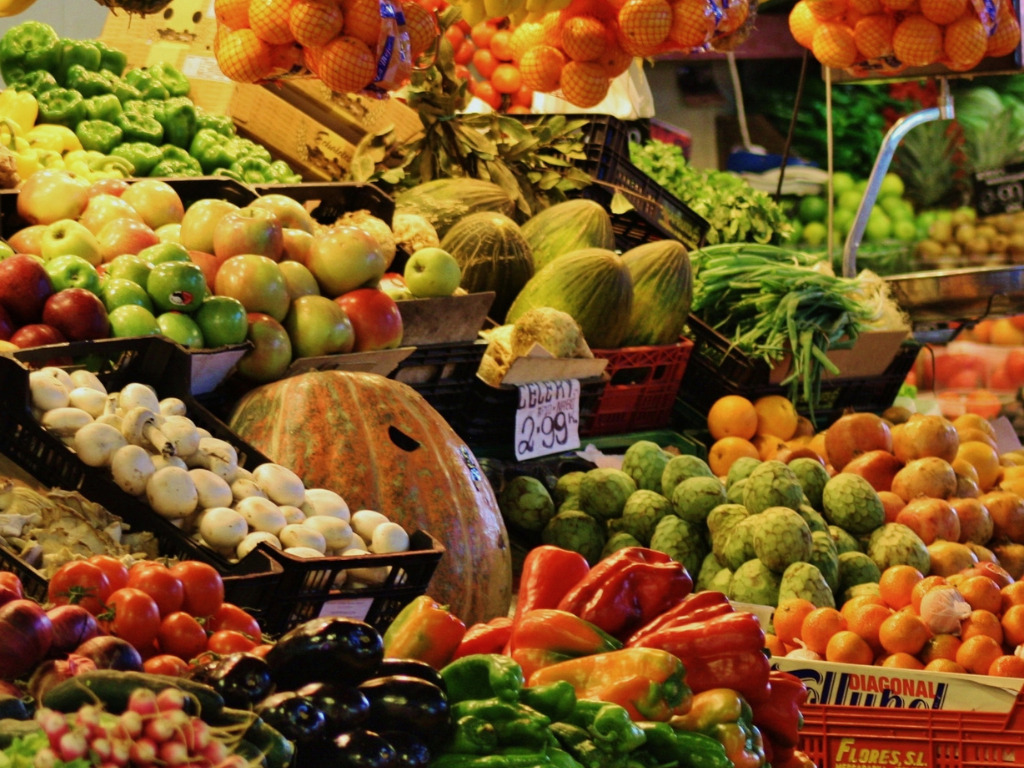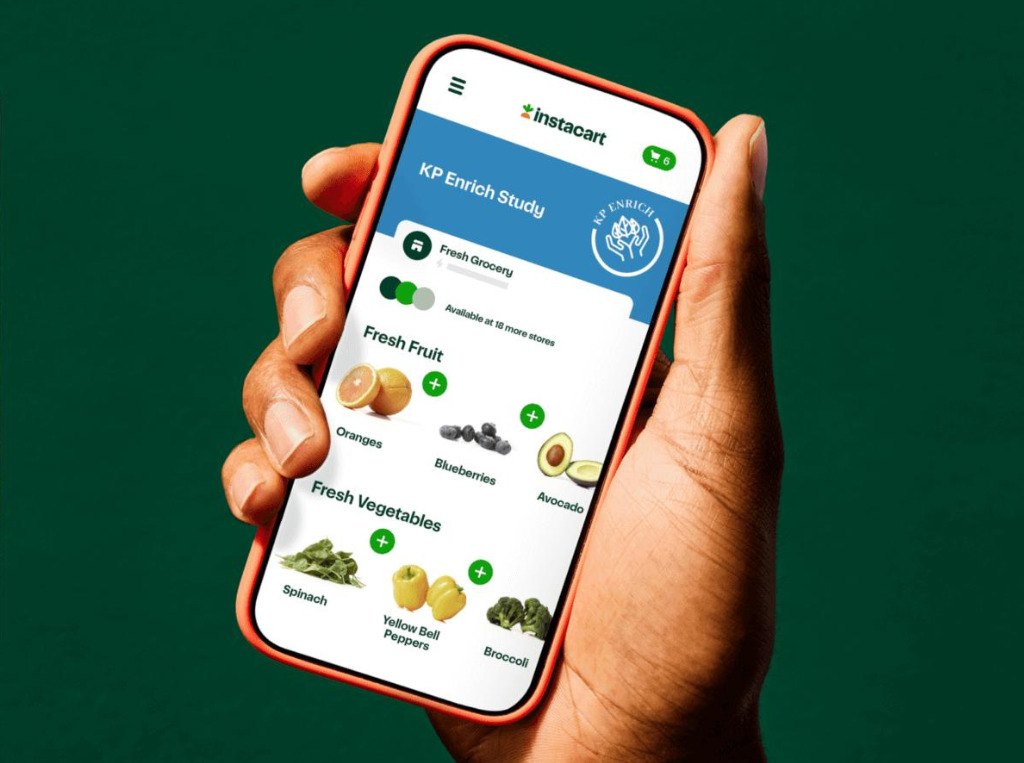Food is Medicine Series: US Healthcare Company & Grocery Retailer to Study the Impact of Nutritious Food Availability on Health
5 Mins Read
A week after research found that Food is Medicine (FIM) programmes could save American lives and billions of dollars in medical costs, US healthcare company Kaiser Permanente and grocery delivery startup Instacart have announced a joint study examining the impact of convenient access to nutritious food on people’s health.
This article is the third instalment of our Food is Medicine content mini-series.
Kaiser Permanente, the largest integrated non-profit healthcare provider in the US, has announced it will team up with Instacart to measure the effects of food as medicine on members of its Medi-Cal members in northern and southern California who have diet-related diseases like diabetes and chronic heart failure, among others.
The study will provide participants with Instacart Health Fresh Funds, which are grocery stipends that can be used to buy “nutritious foods and pantry staples” including fresh and frozen produce, plant-based oils, and spices, via Kaiser Permanente’s curated Instacart Virtual Storefront.
“We know access can lead to better health outcomes, and we’re proud to partner with Kaiser Permanente to demonstrate the positive impact that nutrition security and food as medicine can have on a patient’s overall health and wellbeing,” said Sarah Mastrorocco, Instacart VP and general manager of Instacart Health.

The research will measure blood glucose levels compared to the usual standard of care, reported food and nutrition security, diet-related disease quality of life, patient readiness to change, and hospitalisation or emergency department visits.
Additionally, the programme will provide “dignity of choice” to participants, who will be able to use the Fresh Funds to select the foods that work best for them (within Kaiser Permanente’s recommendations). They will also have access to various national, regional and local retailers on Instacart, with the product being delivered to their doorsteps.
“At Kaiser Permanente, we know that without access to nutritious food, individuals are less likely to stay healthy, increasing the likelihood of new and widening health disparities and healthcare costs,” said Anand Shah, VP of Social Health at Kaiser Permanente. “This innovative study is one of the many avenues that we’re pursuing to improve the health of our members and communities with diet-related diseases.”
Kaiser Permanente: a renewed commitment to Food is Medicine
This isn’t Kaiser Permanente’s first foray into FIM initiatives. In September 2022, it joined food and nutrition leaders at the White House Conference on Hunger, Nutrition and Health to discuss strategies to address the US’s food- and diet-related challenges. Coinciding with the summit was an announcement of Kaiser Permanente’s $50M FIM commitment to strengthen food and nutrition security programmes and build evidence for how food can help prevent and cure some health conditions.
“When people are hungry, or lack proper nutrition or equitable access to the food they require to address their most pressing medical needs, they are less likely to get or stay healthy,” Bechara Choucair, senior VP and chief health officer at Kaiser Permanente, said at the time.
The commitment, which runs through 2030, will support initiatives that include screening nine million of its members for social health needs and expanding e-commerce solutions to increase nutritious food purchase options for recipients of the Supplemental Nutrition Assistance Program and Women, Infants, and Children benefits.

It will also focus on expanding FIM initiatives like produce prescriptions and MTMs for those recently hospitalised with diet-related diseases and building strategic partnerships with innovative businesses, spanning those owned by underrepresented groups, small startups, and large-scale employers.
Additionally, in 2020, the healthcare provider launched three MTM studies for recently discharged hospital patients with chronic conditions, as a result of which, 2,100 patients received over 116,000 MTMs by August 2022.
Around the same time as the White House event last year, Instacart launched a ‘Health initiative‘ to leverage its platform, partnerships and products to enhance nutrition security, enable nutritious choices, and scale up FIM programmes across the country.
Building upon further research and California’s FIM efforts
The results of this newly announced study will provide further evidence of the impact of FIM programmes on people’s health and the medical sector in the US. Last week, a report by Tufts University’s Food is Medicine Institute examined the impact of medically tailored meals and produce prescriptions, and found that these programmes could help reduce diseases, improve quality of life, avert hospitalisations, and save billions in healthcare costs in the US.
“We look forward to continuing to build on this and other important research through our new study with Kaiser Permanente,” Mastrorocco wrote on Instacart’s website. “Through these kinds of public and private partnerships, we can create the evidence needed to support scaling the power of food as medicine to benefit even more families and communities.”
In a statement accompanying the announcement of the study, she said: “We’re dedicated to addressing nutrition insecurity, and by leveraging our technology, significant reach and retail partnerships, we can help families across the country get nutritious foods delivered through Instacart.”
Pamela Schwartz, executive director of food security at Kaiser Permanente, added: “We know food and nutrition insecurity is felt by people in the communities we serve, as well as by millions of Americans nationwide. Identifying best practices to address these inequities is essential to building healthier communities.”

Matsrorocco said Instacart Health tools like Fresh Funds and Virtual Storefronts can help Kaiser Permanente’s Medi-Cal patients take immediate action on their providers’ medically tailored nutrition advice. Also in California, the state has already been testing out fruit and vegetable prescription programmes, and a vast majority of Medi-Cal members participating in food programmes used MTMs in 2022.
Additionally, a bill aiming to make it mandatory for Medi-Cal to cover medically supportive food and nutrition for at least 12 weeks was held by the Assembly, given its high estimated costs. But the members who introduced the bill plan on reintroducing it next year, forecasting that it will gain momentum alongside the grassroots efforts in the state of California.
Don’t miss parts one and two of our Food is Medicine series: Can Produce Prescription Programmes Improve America’s Health & Food Security? and How to Save American Lives and Billions of Dollars with Food Prescriptions.



